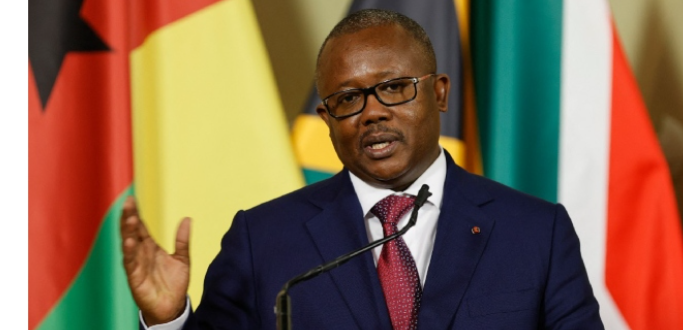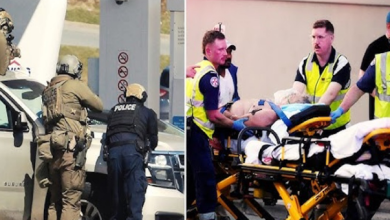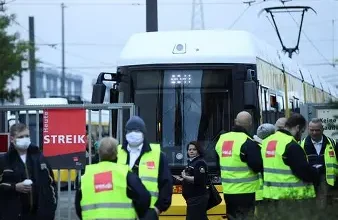Embalo detained in presidential palace as Guinea-Bissau plunges into fresh political turmoil

Guinea-Bissau descended into a new wave of political instability on Wednesday after President Umaro Sissoco Embalo announced that he had been taken into custody inside the presidential palace during what he described as an unfolding coup d’état.
Embalo disclosed that senior government and security officials — including the Chief of Defence Staff, General Biaguê Na Ntam; his deputy, General Mamadou Traoré; and Interior Minister Botche Candé, were also detained.
According to the president, the operation was carried out without violence, though he squarely blamed the army’s top leadership for orchestrating the takeover.
The development comes at a volatile moment for the West African nation, which has been awaiting the official results of Sunday’s presidential poll.
Before the military intervention, Embalo had claimed a commanding 65 percent share of the vote.
His main challenger, Fernando Dias de Costa, also declared victory, setting the stage for a tense political showdown.
Reports from journalists in the capital indicated that bursts of gunfire were heard around the National Electoral Commission headquarters, intensifying fears that the power struggle could escalate.
Earlier in the day, senior military figures addressed the nation, declaring that the armed forces had assumed “total control” of state authority.
The announcement, delivered by General Denis N’Canha, head of the presidential military office, was made with heavily armed soldiers standing visibly behind him.
General N’Canha said a unified command structure comprising all branches of the armed forces would administer the country “until further notice.”
He further announced the suspension of the ongoing electoral process and the immediate closure of national borders.
Guinea-Bissau’s military leadership defended its actions by claiming it had uncovered a plot involving “local drug barons” who were allegedly bringing weapons into the country in a bid to undermine constitutional order.
As part of its measures, the junta imposed a nationwide curfew and halted radio and television broadcasting.
The latest turmoil adds to Guinea-Bissau’s long record of political upheaval.
Since gaining independence in 1974, the country has endured four successful coups and several attempted ones.
Chronic instability, coupled with economic hardship, has made it a major transit point for drug trafficking between Latin America and Europe.
While the international community has yet to issue an official response, regional blocs such as ECOWAS and the African Union are expected to weigh in, given their history of involvement in the country’s crises.
As the situation continues to unfold, the fate of President Embalo and the detained ministers remains uncertain, and the country’s democratic process has once again been thrust into jeopardy.



